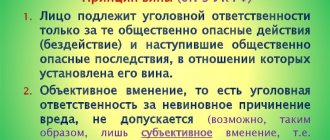1. Sexual intercourse with a person under the age of sixteen, committed by a person who has reached the age of eighteen, -
shall be punishable by compulsory labor for a term of up to four hundred eighty hours, or by restriction of liberty for a term of up to four years, or by forced labor for a term of up to four years with deprivation of the right to hold certain positions or engage in certain activities for a term of up to three years or without it, or by imprisonment for a term of up to four years. for a term of up to four years with or without deprivation of the right to hold certain positions or engage in certain activities for a term of up to ten years.
2. Sodomy or lesbianism with a person under the age of sixteen, committed by a person who has reached the age of eighteen, -
shall be punishable by forced labor for a term of up to five years with deprivation of the right to hold certain positions or engage in certain activities for a term of up to three years or without it, or imprisonment for a term of up to six years with deprivation of the right to hold certain positions or engage in certain activities for a term of up to ten years, or without one.
3. Acts provided for in parts one or two of this article, committed with a person who has reached the age of twelve, but has not reached the age of fourteen, -
shall be punishable by imprisonment for a term of three to ten years with or without deprivation of the right to hold certain positions or engage in certain activities for a term of up to fifteen years and with or without restriction of freedom for a term of up to two years.
4. Acts provided for in parts one, two or three of this article, committed in relation to two or more persons, -
shall be punishable by imprisonment for a term of eight to fifteen years with or without deprivation of the right to hold certain positions or engage in certain activities for a term of up to twenty years.
5. Acts provided for in parts one, two, three or four of this article, committed by a group of persons, a group of persons by prior conspiracy or an organized group, -
shall be punishable by imprisonment for a term of twelve to twenty years with deprivation of the right to hold certain positions or engage in certain activities for a term of up to twenty years or without it and with restriction of freedom for a term of up to two years or without it.
6. Acts provided for in part three of this article, committed by a person who has a criminal record for a previously committed crime against the sexual integrity of a minor, -
shall be punishable by imprisonment for a term of fifteen to twenty years with deprivation of the right to hold certain positions or engage in certain activities for a term of up to twenty years, or life imprisonment.
Notes. 1. A person who has committed a crime for the first time, provided for in the first part of this article, shall be released by the court from punishment if it is established that this person and the crime he committed have ceased to be socially dangerous due to marriage with the victim.
2. If the age difference between the victim (victim) and the defendant (defendant) is less than four years, the latter shall not be punished by imprisonment for the committed act provided for in part one of this article or part one of article 135 of this Code.
- Article 133. Compulsion to perform actions of a sexual nature
- Article 135. Depraved acts
Punishment under Art. 134 of the Criminal Code of the Russian Federation
These crimes are serious and carry criminal liability for any non-violent act, voluntary, consensual sexual intercourse or sodomy or lesbianism committed by an adult with a person from 12 to 16 years of age.
Only a sane male or female person who has reached the age of 18 is subject to punishment. If the intercourse occurred between a 17-year-old and a 16-year-old, there will be no criminal liability.
If the age difference between the victim of sexual intercourse and the perpetrator is less than 4 years, then the offender may not be subject to imprisonment, but provided that no aggravating circumstances have been established, such as unconventional sexual intercourse, group sex or reoffending.
Commentary on Article 135 of the Code of Civil Procedure of the Russian Federation
1. Return of a statement of claim is one of four (along with acceptance of a statement of claim - Article 133 of the Civil Procedure Code, refusal to accept it - Article 134 of the Code of Civil Procedure and leaving without movement - Article 136 of the Code of Civil Procedure) procedural actions that can be performed by the court after filing statement of claim.
Part 1 of the commented article established an exhaustive list of grounds for returning the statement of claim. The judge returns the statement of claim if:
1) the plaintiff has not complied with the pre-trial procedure for resolving the dispute established by federal law for this category of disputes or the pre-trial procedure for resolving the dispute provided for by the agreement of the parties, or the plaintiff has not submitted documents confirming compliance with the pre-trial procedure for resolving the dispute with the defendant, if this is provided for by federal law for this category of disputes or the agreement. Isolating a case where the plaintiff did not submit documents confirming compliance with the pre-trial procedure for resolving a dispute with the defendant as an independent basis for returning the statement of claim raises doubts. The fact is that the obligation to provide evidence confirming the fulfillment of the mandatory pre-trial dispute resolution procedure is expressly provided for in paragraph. 7 tbsp. 132 Code of Civil Procedure. Accordingly, if this obligation is not observed, the rule on leaving the statement of claim without progress should be applied (Part 1 of Article 136 of the Code of Civil Procedure). Thus, with a literal interpretation of the provisions of clause 1, part 1 of the commented article and part 1 of Art. 136 of the Civil Procedure Code reveals a contradiction.
We believe that in such a situation the following approaches can be formulated: a) if the plaintiff presented documents confirming, in his opinion, compliance with the pre-trial procedure for resolving the dispute with the defendant, but the court considered that they do not prove the fact of compliance, a ruling should be made to return the claim statements on the grounds of clause 1 of part 1 of the commented article; b) if the plaintiff has not submitted documents at all confirming compliance with the pre-trial procedure for resolving the dispute with the defendant, a ruling must be made to leave the statement of claim without progress, in which the absence of the above-mentioned documents must be indicated as a deficiency.
For documents confirming compliance with the pre-trial order, see the commentary to Art. 132 Civil Procedure Code;
2) the case is not within the jurisdiction of this court. Lack of jurisdiction should be understood as a violation of the rules of territorial and generic jurisdiction established by Art. Art. 23 - 32 Civil Procedure Code.
Should the statement of claim be returned under clause 2, part 1 of the commented article if the plaintiff combined in one statement of claim substantive legal claims, one or more of which are within the jurisdiction of the court to which the plaintiff applied, and the rest - to another court(s) )? We believe so. The fact is that at the stage of initiating a civil case, the court cannot exercise the power to separate claims into separate proceedings (Article 151 of the Civil Procedure Code is applied not at the stage of initiation, but at a later stage of preparing the case for trial). Consequently, a situation where the court, at the stage of initiating a case, accepts for its proceedings only part of the stated claims and returns the rest, is in principle unacceptable. Thus, the court must consider the issue of accepting for its proceedings a statement of claim containing, among other things, claims beyond its jurisdiction. Obviously, the only procedural act that the court can take in this situation is a ruling on the return of the statement of claim;
3) the statement of claim was filed by an incapacitated person (on civil procedural capacity, see Article 37 of the Code of Civil Procedure);
4) the statement of claim is not signed or the statement of claim is signed and filed by a person who does not have the authority to sign it and present it to the court. The authority to sign and submit a statement of claim to the court must be specifically stipulated in the power of attorney issued to the representative (Article 54 of the Code of Civil Procedure) (see also the commentary to Part 4 of Article 131 of the Code of Civil Procedure);
5) in the proceedings of this or another court or arbitration tribunal there is a case regarding a dispute between the same parties, on the same subject and on the same grounds. The term “court” covers federal courts of general jurisdiction and justices of the peace (Part 4, Article 1 of the Code of Civil Procedure). The mention in the commented norm of arbitration courts is a novelty (cf. paragraph 4, part 2, article 129 of the Code of Civil Procedure of the RSFSR).
On the identity of the claims, see the commentary to clause 2, part 1, art. 134 Code of Civil Procedure. If at the time of filing a claim, a judicial act on an identical claim has entered into legal force, the provisions of clause 2, part 1, art. 134 Code of Civil Procedure (for acts of arbitration courts - see paragraph 3, part 1, Article 134 Code of Civil Procedure). In practice, cases of returning a statement of claim on this basis are quite rare, since the judge deciding the issue of accepting the statement of claim, for objective reasons, cannot have information about the existence of proceedings on an identical claim (the plaintiff, as a rule, is silent about this, while the defendant in this case stage is not summoned to court and does not yet know about the fact of filing a claim; we also note that in the Russian Federation at the moment there is no unified system for recording cases that would allow promptly obtaining information about cases pending in court proceedings).
If the fact of proceedings on an identical claim becomes known to the court after the initiation of the case, the statement of claim must be left without consideration (paragraph 5 of Article 222 of the Code of Civil Procedure). We believe that there is a certain logical contradiction between the grounds for returning the statement of claim, specified in paragraph 5 of part 1 of the commented article, and the grounds for leaving the statement without consideration, specified in paragraph. 5 tbsp. 222 Code of Civil Procedure. The fact is that both of these procedural institutions have similar procedural goals and consequences (compare with parts 2, 3 of the commented article and parts 1, 2 of Article 223 of the Code of Civil Procedure). At the same time, par. 5 tbsp. 222 of the Code of Civil Procedure mentions not only courts, but also arbitration courts. It turns out that if, when accepting a statement of claim, the court establishes the fact of proceedings on an identical claim in an arbitration court, then in this case it will still be obliged to accept the statement of claim for proceedings and only then leave the claim without consideration.
On the contrary, par. 5 tbsp. 222 of the Code of Civil Procedure does not mention arbitration courts at all. Thus, if, when accepting a statement of claim, the court establishes the fact of proceedings on an identical claim in an arbitration court, then it will be obliged to return the statement of claim. If this fact is discovered after the statement of claim is accepted, then the law does not give it any legal significance at all. The only thing that remains for the defendant is to state, before the hearing of the case on the merits, an objection regarding the consideration and resolution of the dispute in court (paragraph 5 of Article 222 of the Code of Civil Procedure). If he does not do this, then the same claim will be considered in parallel both in court and in the arbitration court, since neither the Civil Procedure Code nor the Federal Law “On Arbitration Courts in the Russian Federation” allows in this situation to leave the claim without consideration ( paragraph 5 of Article 222 of the Code of Civil Procedure) or terminate the arbitration proceedings (Article 38 of the said Law). As a result, only a judicial act can affect “competing” proceedings (see paragraph 6 of Article 220 of the Code of Civil Procedure and paragraph 8 of Article 38 of the said Law). Such “competition” of processes is unacceptable, therefore, in order to eliminate it, we believe that para. 5 tbsp. 222 of the Code of Civil Procedure should be interpreted broadly, including arbitration courts in the concept of “court”.
We also note that the rule of paragraph 5 of part 1 of the commented article does not apply in the case where, before the consideration of the case on the merits, the judicial proceedings were lost (part 1 of article 316 of the Code of Civil Procedure gives the plaintiff in this situation the right to bring a new identical claim);
6) before the court issued a ruling on accepting the statement of claim for court proceedings, the plaintiff received an application for the return of the statement of claim.
This rule is a completely reasonable innovation, borrowed from the arbitration process (see paragraph 9, part 1, article 108 of the Arbitration Procedure Code of 1995, paragraph 3, part 1, article 129 of the Arbitration Procedure Code of 2002). The right of the plaintiff to request the return of the statement of claim follows from the fundamental principle of civil procedure - the principle of dispositiveness. An application for the return of a statement of claim should not be confused with a waiver of a claim: the latter excludes the possibility of filing an identical claim in the future, being the basis for termination of the proceedings (paragraph 4 of Article 220 of the Code of Civil Procedure).
Taking into account the rules of Part 2 of Art. 45 and part 2 of Art. 46 of the Code of Civil Procedure, it should be concluded that the prosecutor, as well as persons who went to court to protect the interests of others in accordance with Art. 46 of the Code of Civil Procedure, also has the right to declare the return of the statement of claim.
The list of grounds set out in paragraph 1 of part 1 of the commented article is exhaustive and is not subject to broad interpretation. At the same time, the institution of returning a statement of claim is mentioned in Part 2 of Art. 136 of the Code of Civil Procedure, according to which, if, after leaving the statement of claim without progress, the applicant fails to comply with the instructions of the judge listed in the ruling within the prescribed period, the application is considered not filed and is returned to the applicant with all documents attached to it.
It should also be pointed out that the commented norm contradicts bankruptcy legislation. Yes, para. 2 p. 1 art. 63 of the Federal Law of October 26, 2002 N 127-FZ “On Insolvency (Bankruptcy)” <1> provides that from the date of the arbitration court’s ruling on the introduction of supervision of the claims of creditors for monetary obligations and for the payment of mandatory payments, the deadline for which occurred on the date of introduction of supervision, can be presented to the debtor only in compliance with the procedure for presenting claims against the debtor established by this Federal Law. A similar rule is contained in paragraph. 2 p. 1 art. 81 of the said Law, which determines the legal consequences of the introduction of financial recovery. In para. 7 clause 1 art. 126 of the said Law establishes that from the date of the arbitration court’s decision to declare the debtor bankrupt and to open bankruptcy proceedings, all claims of creditors for monetary obligations, for the payment of obligatory payments, other property claims, with the exception of claims for recognition of property rights, for the recovery of moral damages, on reclaiming property from someone else’s illegal possession, on invalidating void transactions and applying the consequences of their invalidity, as well as current obligations specified in paragraph 1 of Art. 134 of this Law, can only be presented during bankruptcy proceedings. Thus, the above norms clearly and unambiguously prevent the initiation of certain categories of cases <2>.
——————————— <1> NW RF. 2002. N 43. Art. 4190. <2> The restrictions established by the Federal Law “On Insolvency (Bankruptcy)” do not apply to labor disputes (see paragraph 11 of Article 16 of the said Law).
The absence of corresponding rules in the Civil Procedure Code that would establish an appropriate basis for returning a statement of claim or, if a case has already been initiated, for leaving the statement without consideration, can have a very negative impact in practice, giving rise to conflicts between acts of courts of general jurisdiction and arbitration courts.
The Supreme Court of the Russian Federation, when interpreting previously existing legislation (Civil Procedure Code of the RSFSR and Federal Law of January 8, 1998 No. 6-FZ “On Insolvency (Bankruptcy)” <1>) explained that the norms of this Federal Law “do not provide for the possibility of consideration by courts of general jurisdiction appeals of citizen creditors to a court of general jurisdiction to recover from a debtor, against whom an arbitration court has initiated a bankruptcy case, sums of money in fulfillment of civil obligations, with the exception of labor relations, relations for compensation for harm caused to the life and health of the creditor, moral compensation harm caused by the debtor by violation of civil obligations, reclaiming property from someone else’s illegal possession and demands to declare the transaction invalid, on grounds not provided for in Art. 78 of the Law, as well as claims made by citizens during the period of external management for obligations the deadline for fulfillment of which came after the introduction of external management (clause 1 of Article 70 of the Law)" <2>. Consequently, it is quite logical to assume that the absence of corresponding norms in Art. Art. 135 and 222 of the Code of Civil Procedure will not prevent the Supreme Court of the Russian Federation from formulating similar recommendations in relation to current legislation.
——————————— <1> NW RF. 1998. N 2. Art. 222. <2> Review of judicial practice of the Supreme Court of the Russian Federation for the second quarter of 2000. Approved by the Resolution of the Presidium of the Supreme Court of the Russian Federation of October 4, 2000 // BVS RF. 2001. N 1.
On the application of the institution of returning a statement of claim when accepting a counterclaim, see the commentary to Art. 138 Code of Civil Procedure.
2. Part 2 of the commented article establishes the content of the determination to return the statement of claim. This determination must be made by the court within five days from the moment the statement of claim is received by the court (see commentary to Article 133 of the Code of Civil Procedure).
The commented norm does not resolve the issue of the period within which the determination to return the statement of claim (together with the application and all documents attached to it) must be sent or handed to the applicant. Applying by analogy the provisions of Part 2 of Art. 134 of the Code of Civil Procedure, it should be concluded that this ruling must be sent or handed to the applicant immediately after issuance (or, in any case, within five days from the date of receipt of the application to the court) (about the deadline for issuing a ruling on the return of the statement of claim in cases when the statement of claim was previously left without progress, see commentary to Part 2 of Article 136 of the Code of Civil Procedure).
3. The return of the statement of claim does not prevent the plaintiff from filing a lawsuit again with the same defendant, on the same subject and on the same grounds, if the plaintiff eliminates the violation. A repeated appeal within the meaning of the commented norm is a new independent statement of claim, the issue of acceptance of which will be considered according to the general rules of Chapter. 12 Civil Procedure Code.
A private complaint may be filed against the judge’s decision to return the application. We believe that this ruling can only be appealed by subjects whose procedural rights are directly affected by the ruling: the plaintiff, a third party making independent claims regarding the subject of the dispute, the prosecutor, as well as persons who have applied to the court for the protection of other people’s interests in accordance with Art. 46 Code of Civil Procedure.
In case of cancellation of the ruling, the statement of claim must be considered filed on the day of the initial application to the court, which for the plaintiff in a number of cases can have important substantive consequences (break in the limitation period - Part 1 of Article 203 of the Civil Code, the amount of the discount rate of bank interest when collection of interest under Article 395 of the Civil Code, etc.).
Arbitrage practice
For clarity, we will provide an extract from the verdict of the Vurnarsky District Court of the Chuvash Republic dated May 15, 2021:
“A.I. Lavrentyev, born on February 12, 1999, having reached the age of eighteen, at about 01:00 on January 20, 2018, while intoxicated, together with A.Yu. Filippova, who was obviously fourteen years old, born on January 10, 2004 , in a house located at the address: Chuvash Republic, Vurnary district, Vurnary village, st. Melioratorov, no. 12, in order to satisfy his sexual needs, he decided to have sexual intercourse with A.Yu. Filippova. In order to implement the criminal intent that arose, during the above period of time, A.I. Lavrentyev, being together with A.Yu. Filippova. on a bed located at the above address, continuing his criminal actions aimed at satisfying his sexual needs, acting intentionally, realizing the actual nature and social danger of his actions and, desiring the onset of socially dangerous consequences, knowingly knowing that Filippova A.Yu. under the age of sixteen, had sexual intercourse with her. As a result of the criminal actions of Lavrentyev A.I. minor victim Filippova A.Yu. caused moral harm, as well as harm to moral and physical development"
Let us repeat that in order to be charged and sentenced under this article, it is necessary to know that the victim is under 16 years of age.




